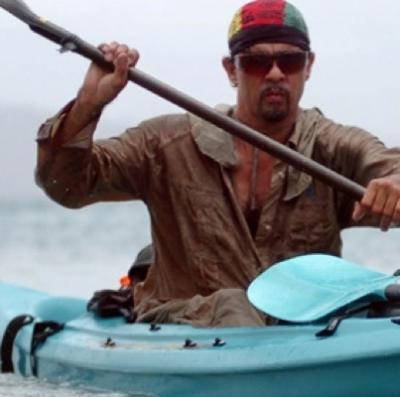The last couple of weeks, legendary Puerto Rican activist Tito Kayak has been re-creating the centuries-old migratory voyage made by indigenous people from Venezuela to the Greater Antilles to draw attention to the imprisonment of Puerto Rican Independence activist Oscar López Rivera. Imprisoned for “seditious conspiracy” López Rivera has been behind bars for over 30 years and is not scheduled to be released until 2027, when he would be 84 years old.
It’s clear that the US media blackout of matters pertaining to the Puerto Rican independence movement, which doesn’t seem to apply to the Irish Republican Army and the Basque separatist movement in Spain, has made most US citizens unaware of the extreme treatment of those identified as threats to national security. The case of López Rivera, someone who is alleged to have taken part in a major crime (whether accurate or not) on US soil, is condemned to obscurity. But activists like Tito Kayak refuse to let that be.
You might remember Tito from the action he led in 2000 when he planted a Puerto Rican flag on the Statue of Liberty to urge the US Navy to stop bombing Vieques, an island off the coast of Puerto Rico.
Or perhaps you’ve seen this video of Kayak escaping Puerto Rican authorities during a protest against the use of public beaches on the island for private development. The symbolic value is significant: he escaped by propelling a human-powered kayak under the arches of the Dos Hermanos bridge, making it impossible for the police motor boats to follow. His escape was assured when several supporters jumped into the water nearby causing the police to mistake them for him and allow his getaway.
Kayak is a significant figure in the way he envisions activism as a kind of performance art, yet never strays from his commitment to defend Puerto Rico’s environment and right to self-determination, refusing to self-aggrandize his technique or strategy. He embodies the physical strength and agility of the isleño, and his heart seems focused on protecting a kind of human sovereignty, a nationalism without borders or military, a connectedness to the earth, particularly the ocean.
You can follow his journey through the Caribbean here.
More info on Oscar López Rivera can be found here.


More information of these voyage at : http://www.facebook.com/kayakeandoporlalibertad